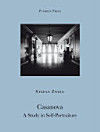Three Masters
About this ebook
In his portraits, Zweig emphasizes Balzac's encyclopedic vision of society, Dickens's moral fervor and empathy for the underprivileged, and Dostoevsky's exploration of the human soul's darkest and most ecstatic dimensions. Rather than focusing solely on biographical facts, Zweig delves into the inner tensions and creative struggles that shaped their literary identities, presenting them as artists driven by an obsessive need to understand and represent the complexities of existence.
Since its publication, Three Masters has been praised for its eloquent prose, psychological insight, and passionate engagement with literature. It stands not only as a tribute to the authors it examines but also as a reflection of Zweig's own humanist worldview—one that values empathy, depth, and the enduring relevance of great art.
By intertwining biography with literary criticism, Three Masters invites readers to consider how art emerges from personal experience, cultural forces, and inner conflict. It remains a compelling guide to the timeless influence of literature and the creative spirits who shape our understanding of the human condition.
About the author
Stefan Zweig was an Austrian writer, biographer, and intellectual, widely regarded as one of the most prominent literary figures of early 20th-century Europe. Born in Vienna during the final decades of the Austro-Hungarian Empire, Zweig is celebrated for his psychologically nuanced narratives, historical biographies, and essays that explore the inner lives of his characters and the cultural upheavals of his time. His elegant prose and deep humanism earned him an international readership during his lifetime, and his works remain influential today.
Zweig's literary output spans fiction, biography, essays, and plays. He was particularly skilled at psychological portraiture, delving deeply into the emotional and existential struggles of individuals caught in moments of crisis. His novellas, such as Amok (1922), Letter from an Unknown Woman (1922), and Fear (1925), reveal his fascination with passion, obsession, and moral conflict. His narrative style is marked by lyrical prose, psychological insight, and dramatic tension.
Stefan Zweig was a literary phenomenon in the interwar years, admired across Europe and the Americas for his accessible yet profound storytelling. He was an outspoken pacifist and a staunch defender of European unity, which made him both celebrated and criticized during politically volatile times. With the rise of Nazism, Zweig's works were banned in Germany, and he was forced into exile due to his Jewish heritage and humanist beliefs.
Zweig's literature, often imbued with melancholy and a longing for a lost world, captures the fragility of civilization and the inner turmoil of individuals navigating cultural and historical ruptures. His writing anticipates many of the crises of identity and displacement that would define the modern era.








